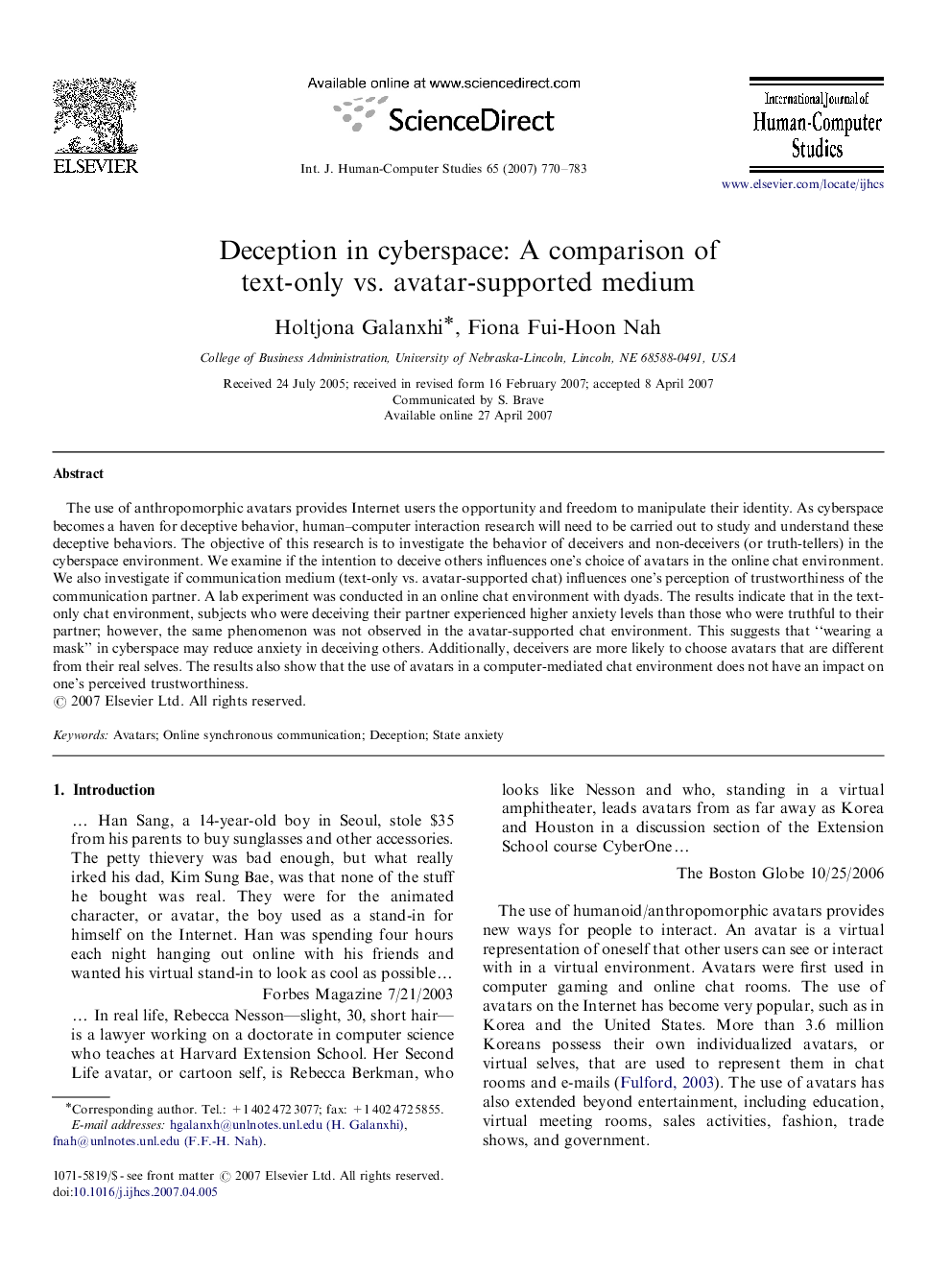| Article ID | Journal | Published Year | Pages | File Type |
|---|---|---|---|---|
| 401077 | International Journal of Human-Computer Studies | 2007 | 14 Pages |
The use of anthropomorphic avatars provides Internet users the opportunity and freedom to manipulate their identity. As cyberspace becomes a haven for deceptive behavior, human–computer interaction research will need to be carried out to study and understand these deceptive behaviors. The objective of this research is to investigate the behavior of deceivers and non-deceivers (or truth-tellers) in the cyberspace environment. We examine if the intention to deceive others influences one's choice of avatars in the online chat environment. We also investigate if communication medium (text-only vs. avatar-supported chat) influences one's perception of trustworthiness of the communication partner. A lab experiment was conducted in an online chat environment with dyads. The results indicate that in the text-only chat environment, subjects who were deceiving their partner experienced higher anxiety levels than those who were truthful to their partner; however, the same phenomenon was not observed in the avatar-supported chat environment. This suggests that “wearing a mask” in cyberspace may reduce anxiety in deceiving others. Additionally, deceivers are more likely to choose avatars that are different from their real selves. The results also show that the use of avatars in a computer-mediated chat environment does not have an impact on one's perceived trustworthiness.
